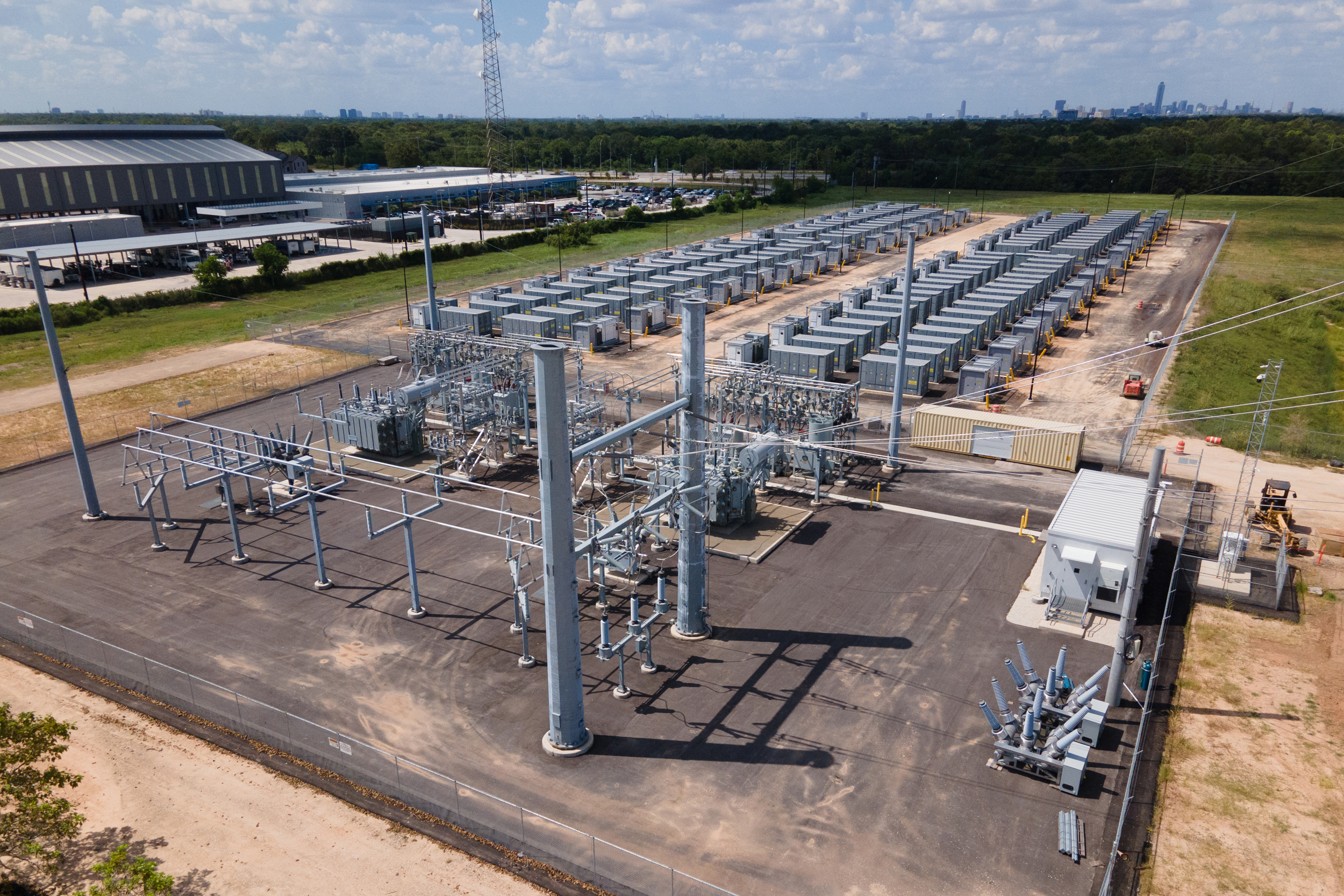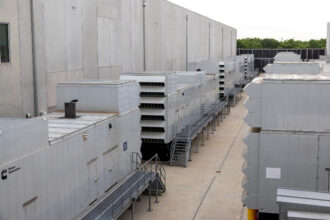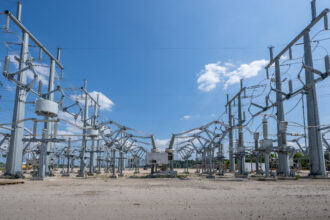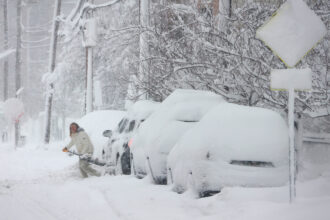President Donald Trump’s policies targeting U.S. renewable energy have put two-thirds of Texas’ future solar and battery storage projects at risk of getting stuck in regulatory limbo.
The sector’s leading trade group, Solar Energy Industries Association (SEIA), found that the Trump administration’s stalling of renewable projects through slowing federal permitting and rolling back tax credits could result in more than 13,000 megawatts of planned solar and battery projects—half of all the scheduled projects—might not come online in Texas next year.
In 2027, the share of at-risk capacity jumps to more than 22,500 megawatts of the 26,000 planned. In total, SEIA identified 165 projects in Texas that are at risk of not being built.
The figures are from an analysis of Energy Information Administration (EIA) data. More than 70 gigawatts of solar and 40 gigawatts of battery projects haven’t received all the federal, state and local permits required and are at risk of being slowed down by an administration determined to halt renewable development in favor of fossil fuels.
Some projects in the interconnection queue have lost funding from canceled Solar for All grants and it’s assumed that some projects might not be built due to the loss of tax incentives, said Cyrus Reed, conservation director of the Sierra Club Lone Star Chapter. It’s too early to tell what the broad impact will be, Reed said.
In July, the Trump administration began requiring the Interior Secretary Doug Burgum’s office to sign off on all the agency’s decisions regarding clean energy projects. In its announcement, the Interior Department said it was “ending preferential treatment for unreliable, subsidy-dependent wind and solar energy.”
Later, in September, an agency official said the Interior Department was prioritizing permits for new fossil fuel plants over renewable energy projects because of limited resources and a desire to focus on permitting “reliable” power.
The Interior Department did not respond to questions about how many solar and storage projects were approved by the department since July.
SEIA President Abigail Ross Hopper said the administration’s policies are threatening the future of U.S. energy.
“Political attacks on solar and storage are putting half of all power planned to come onto the grid this decade at risk, just as electricity demand from AI is exploding,” Hopper said. “These are projects that would lower costs for families, strengthen our grid and cement America’s global competitiveness.”
While campaigning last year, Trump pledged to cut electricity bills across the country in half within 12 months. A new analysis by Democratic members of the U.S. Congress Joint Economic Committee found that the opposite is happening. Households in nearly every state are on track to pay more for electricity this year than last, upwards of $100. Texas is no exception, the congressional report found.
On average, a Texas household spent $1,960 on electricity last year. This year, they’re projected to pay $2,070, or 5.6 percent more.
Washington, D.C., is projected to have the largest bill increase, up more than 22 percent, followed by Indiana, which the analysis forecasts will see average electricity bills rise more than 16 percent.
The CEO of the Electric Reliability Council of Texas (ERCOT), the state’s grid operator, credited both solar and storage for bolstering the grid throughout the summer without ever having to make conservation calls despite record-breaking energy demand.
When the state legislature was debating bills earlier this year to restrict the growth of renewables in Texas, the Texas Energy Buyers Alliance Club, a trade group, reported that blocking future renewable energy and storage would cost Texans $115 billion in higher wholesale prices over the next 15 years, for both residential and commercial customers within ERCOT.
“Texans know how nonsensical it is for President Trump and Congress to cancel tax incentives for renewables and Solar for All grants so they can spend hundreds of millions to prop up old, polluting coal plants,” Reed said. “Texans deserve to see these projects built, not lost due to federal decisions that are bad for business, bad for bills and bad for our air and water.”
About This Story
Perhaps you noticed: This story, like all the news we publish, is free to read. That’s because Inside Climate News is a 501c3 nonprofit organization. We do not charge a subscription fee, lock our news behind a paywall, or clutter our website with ads. We make our news on climate and the environment freely available to you and anyone who wants it.
That’s not all. We also share our news for free with scores of other media organizations around the country. Many of them can’t afford to do environmental journalism of their own. We’ve built bureaus from coast to coast to report local stories, collaborate with local newsrooms and co-publish articles so that this vital work is shared as widely as possible.
Two of us launched ICN in 2007. Six years later we earned a Pulitzer Prize for National Reporting, and now we run the oldest and largest dedicated climate newsroom in the nation. We tell the story in all its complexity. We hold polluters accountable. We expose environmental injustice. We debunk misinformation. We scrutinize solutions and inspire action.
Donations from readers like you fund every aspect of what we do. If you don’t already, will you support our ongoing work, our reporting on the biggest crisis facing our planet, and help us reach even more readers in more places?
Please take a moment to make a tax-deductible donation. Every one of them makes a difference.
Thank you,













